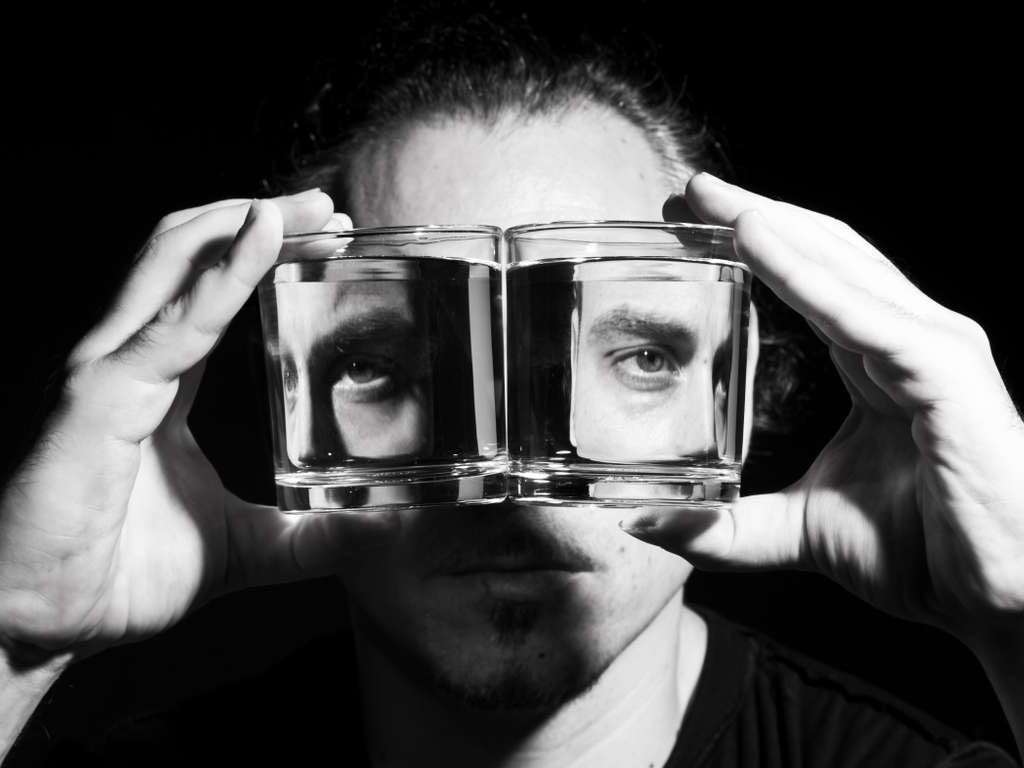10 Paranoid Personality Disorder Symptoms
 Article Sources
Article Sources
- 1. 'Paranoid Personality Disorder: Symptoms, Diagnosis & Treatment.' _Cleveland Clinic_, my.clevelandclinic.org/health/diseases/9784-paranoid-personality-disorder.
- 2. Paranoid Personality Disorder By Andrew Skodol, et al. 'Paranoid Personality Disorder - Mental Health Disorders.' _Merck Manuals Consumer Version_, Merck Manuals, www.merckmanuals.com/home/mental-health-disorders/personality-disorders/paranoid-personality-disorder.
- 3. Edited by Editorial Staff. Last Updated: June 11, 201 9: 'How Are Paranoid Personality Disorder and Concurrent Drug Abuse Treated?' _American Addiction Centers_, 11 June 2019, americanaddictioncenters.org/personality-disorders/paranoid.
- 4. Weber, Mike. 'Paranoid Personality Disorder (PPD).' _HelpGuide.org_, www.helpguide.org/articles/mental-disorders/paranoid-personality-disorder.htm.
- 5. Lee, Royce J. 'Mistrustful and Misunderstood: a Review of Paranoid Personality Disorder.' _Current Behavioral Neuroscience Reports_, vol. 4, no. 2, 2017, pp. 151–165., doi:10.1007/s40473-017-0116-7.
Paranoid personality disorder is a group of debilitating mental illnesses that affects a person’s ability to think clearly and understand the world around them. A plethora of symptoms can manifest in people with PPD, many of which overlap with mental illnesses like schizophrenia, bipolar disorder, depression and dissociative identity disorder.
PPDs are classified as Cluster A or eccentric personality disorders and affect between 2.3 percent and 4.4 percent of the general population. Learn how to identify the symptoms of PPD and discover how a person with PPD may react in various situations.

1. Paranoia
As it’s in the name, it should come as no surprise that general paranoia is one of the main symptoms of PPD. Paranoia can manifest as a symptom in a number of ways and can be generally present in people with the disorder and also triggered by seemingly random occurrences.
It seems to be a near-constant mental state for those with the disorder. There’s no rhyme or reason for what drives this paranoia, but sufferers mistrust people and their intentions, even those of their friends, family members and their partners.1‘Paranoid Personality Disorder: Symptoms, Diagnosis & Treatment.’ Cleveland Clinic, my.clevelandclinic.org/health/diseases/9784-paranoid-personality-disorder.

2. Doubt
Doubt is a common symptom in people with paranoid personality disorder. Those with PPD may wonder about the truth of words spoken to them for no apparent reason, mistrust the actions of others and their general proficiency, and question the love that people profess to have for them.
Because of this apprehension, people with PPD are very guarded and take a great deal of coaxing to open up to people about themselves. This can make talk therapy challenging.1‘Paranoid Personality Disorder: Symptoms, Diagnosis & Treatment.’ Cleveland Clinic, my.clevelandclinic.org/health/diseases/9784-paranoid-personality-disorder.

3. Interpreting Situations as Hostile
Individuals diagnosed with PPD read into events and interpret regular occurrences as hostile or negative when no indicators are present. Seemingly harmless phrases and interactions can trigger those with PPD to judge others as purposefully rude or harmful.
A simple interaction with a cashier can be full of meaning to someone with PPD, as their guarded minds are almost constantly telling them that they’re in danger. A simple request for an ID, could signify an invasion of their privacy.2Paranoid Personality Disorder By Andrew Skodol, et al. ‘Paranoid Personality Disorder - Mental Health Disorders.’ Merck Manuals Consumer Version, Merck Manuals, www.merckmanuals.com/home/mental-health-disorders/personality-disorders/paranoid-personality-disorder.

4. Stress
The feeling that someone or everyone is out to get you can be extremely exhausting, causing PPD sufferers to experience inordinate amounts of stress. High heart rates, headaches and other manifestations of stress are extremely common in people with paranoid personality disorder.
The body’s stress response in those with PPD can increase feelings of paranoia, leading to a terrible cycle of constant mistrust, which leads to more stress, which leads to more uneasiness.2Paranoid Personality Disorder By Andrew Skodol, et al. ‘Paranoid Personality Disorder - Mental Health Disorders.’ Merck Manuals Consumer Version, Merck Manuals, www.merckmanuals.com/home/mental-health-disorders/personality-disorders/paranoid-personality-disorder.

5. Substance Abuse
People with paranoid personality disorder generally have high levels of stress and discomfort due to their inability to trust people around them. They often turn to harmful substances like drugs and alcohol to cope with stress and likely won’t believe the word of their doctors and loved ones when they’re told such substances are dangerous.
This places PPD sufferers at a high risk for substance abuse. Finding a rehab center or counselor who’s trained in co-occurring disorders is critical to successful recovery.3Edited by Editorial Staff. Last Updated: June 11, 201 9: ‘How Are Paranoid Personality Disorder and Concurrent Drug Abuse Treated?’ American Addiction Centers, 11 June 2019, americanaddictioncenters.org/personality-disorders/paranoid.

6. Lack of Social Life
Because of their inability to trust others, many people with PPD have a lack of friends or close relationships even within their family circle. Remaining constantly suspicious of their surroundings can eliminate the ability of those with paranoid personality disorder to relax enough to form friendships or romantic connections.
The lack of a social life can become very difficult for family members of those with the disorder. It’s not uncommon to see family ties severed as the disorder progresses.2Paranoid Personality Disorder By Andrew Skodol, et al. ‘Paranoid Personality Disorder - Mental Health Disorders.’ Merck Manuals Consumer Version, Merck Manuals, www.merckmanuals.com/home/mental-health-disorders/personality-disorders/paranoid-personality-disorder.

7. Jealousy
As sufferers of PPD often view experiences they go through in a suspicious light, it’s not uncommon for them to view fortuitous events that happen to other people as negative toward themselves. So, if a coworker gets a raise, it’s because the boss likes that person better.
This tendency towards narcissism coupled with a natural suspicion of others can lead to intense feelings of jealousy. Jealousy can make it incredibly difficult for people with this disorder to enjoy work friendships and maintain romantic relationships.2Paranoid Personality Disorder By Andrew Skodol, et al. ‘Paranoid Personality Disorder - Mental Health Disorders.’ Merck Manuals Consumer Version, Merck Manuals, www.merckmanuals.com/home/mental-health-disorders/personality-disorders/paranoid-personality-disorder.

8. Holding Grudges
People with paranoid personality disorder often view innocent people with suspicion and mistrust by default. Typically, people with PPD hold grudges for inordinate lengths of time when they perceive that someone has wronged them in some way.
Grudges can be applied to family members, friends or strangers and last indefinitely. The PPD sufferer feels that the guilty party is just confirming their untrustworthy characteristics. Those with PPD are very slow to forgive if they ever do.2Paranoid Personality Disorder By Andrew Skodol, et al. ‘Paranoid Personality Disorder - Mental Health Disorders.’ Merck Manuals Consumer Version, Merck Manuals, www.merckmanuals.com/home/mental-health-disorders/personality-disorders/paranoid-personality-disorder.

9. Social Aggression
Remaining constantly suspicious about whether people are insulting them or making fun of them can lead people with PPD to develop internalized defense mechanisms. They may lash out at others in self-defense (both verbally and physically) at any remark or action interpreted to be harmful or insulting in some way.
Since paranoid personality disorder often co-occurs with other mental health disorders, other social responses, including shyness, lack of responsiveness and self-isolation can aggravate the situation.4Weber, Mike. ‘Paranoid Personality Disorder (PPD).’ HelpGuide.org, www.helpguide.org/articles/mental-disorders/paranoid-personality-disorder.htm.

10. Violence
Paranoid personality disorder is sometimes associated with violence and stalking in the forensic world. Those with PPD who don’t get the mental health care they need may grow worse over time, especially if they don’t have anyone to help them deal with their feelings of mistrust and suspicion.
This can increase their capacity to commit violent acts. However, those who receive help and work with their therapists are usually at low risk of committing any kind of violent act.5Lee, Royce J. ‘Mistrustful and Misunderstood: a Review of Paranoid Personality Disorder.’ Current Behavioral Neuroscience Reports, vol. 4, no. 2, 2017, pp. 151–165., doi:10.1007/s40473-017-0116-7.











